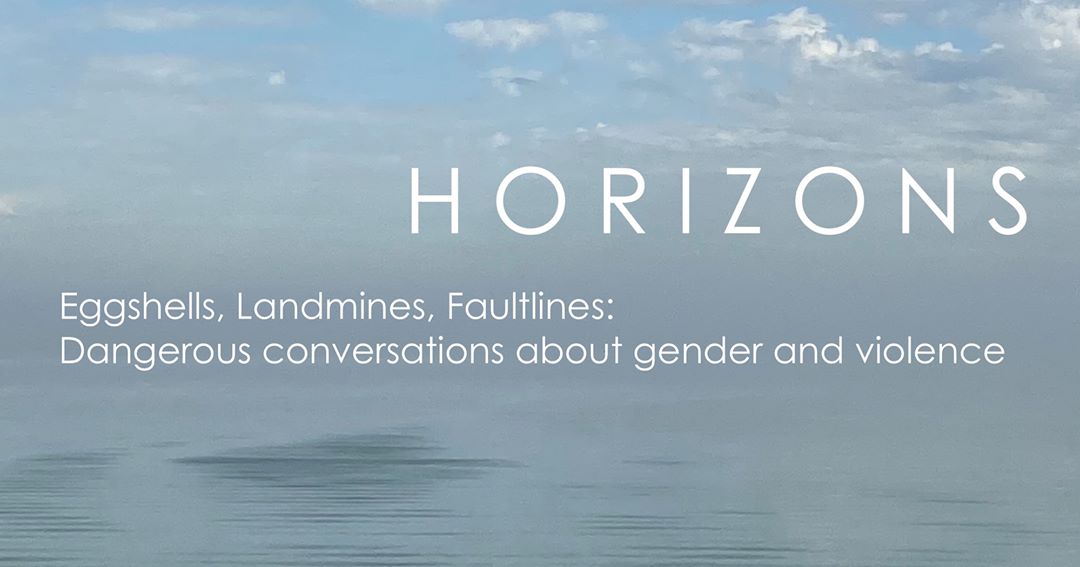|
One of the most encouraging aspects of the Australian theological scene is the work of the Australian Collaborators in Feminist Theologies. Based at the University of Divinity, Melbourne, this vital network has considerably inspired and supported me in recent times and will, I hope, continue to grow in strength and influence. From a transgender perspective, it is certainly a very positive community in which to be a part. Personally I am already thankful to this project and its leaders to have an essay (entitled 'From Footballs to Matildas? - Gender Diverse People and Theological Game Change') included in the forthcoming book Contemporary Feminist Theologies: Power, Authority, Love - part of Routledge's 'Gender, Theology and Spirituality' series. I am also pleased to share in the Horizons series of online conversations which the Collaborators run on a monthly basis. This month, I am myself a focal point, chatting with Dr Cath McKinney about intersectionality, not least the challenges and opportunities of gender diverse people within feminist developments (link to event here). Here below - and at this link - is a short reflection to stimulate thought and discussion, trying to move well beyond fruitless destructive controversies such as that recently stoked by J.K.Rowling. Our times, and people of all gender identities, call for genuine depth of greater connection, contemplation, and creativity... Eggshells, Landmines, Fault Lines: Dangerous Conversations about Gender and Violence
Simply existing as a transgender person is to share a dangerous vocation. For humanity constructs its worlds with a multiplicity of constricted shapes and identity lines. Some give life but at the cost of violence. Altering forms thus inevitably involves conflict, even lateral violence between different identities struggling for liberation. Painful struggles over emerging gender identities in relation to ‘woman space’ highlight this today. Fresh fault lines emerge among feminists. Trans women in particular frequently negotiate landmines in their path. Like womanist and dis/ableist advocates, they break open to new life but at the seeming cost, to some, of treasured shells of being. Continuing controversy over transgender rights, fueled recently by notable figures such as J.K.Rowling, is but one such exposure of the struggles of women from different trans and cis gender trajectories. For all of us, transfiguring unreflective be-ing and becoming oneself is at the heart of our human calling. Walking into authenticity thus requires courage, perception and means of life-bearing survival. Intersectional community is increasingly recognised by many as vital in this. What however are its most fruitful pathways, and how are they best nurtured? These are theological and pastoral imperatives, particularly with rising outcry in some variously privileged circles about alleged ‘political correctness’, ‘identity politics’, and ‘cancel culture’ developments. Naming and facing up to the multi-faceted experiences of violence among us is essential and cannot be avoided if we seek shalom. Such naming and encounter will however always be very difficult without a more tender grammar of assent. Churches are among those who show particular resistance, not only to naming and facing violence, but to developing anything much more than proverbially ‘treading on eggshells’. Perhaps Mary Oliver’s poem ‘Breakage’ provides contemplative grounding for moving forward together, treading courageously but also softly with one another’s dreams. In the morning light the poet goes to the edge of the sea and encounters the richness of many shells: ‘It’s like a schoolhouse’ of thousands of little words,' she says: ‘First you figure out what each one means by itself, the jingle, the periwinkle, the scallop full of moonlight. Then you begin, slowly, to read the whole story.’
0 Comments
Leave a Reply. |
AuthorThe Revd Dr Jo Inkpin: Archives
March 2024
Categories
All
|

 RSS Feed
RSS Feed